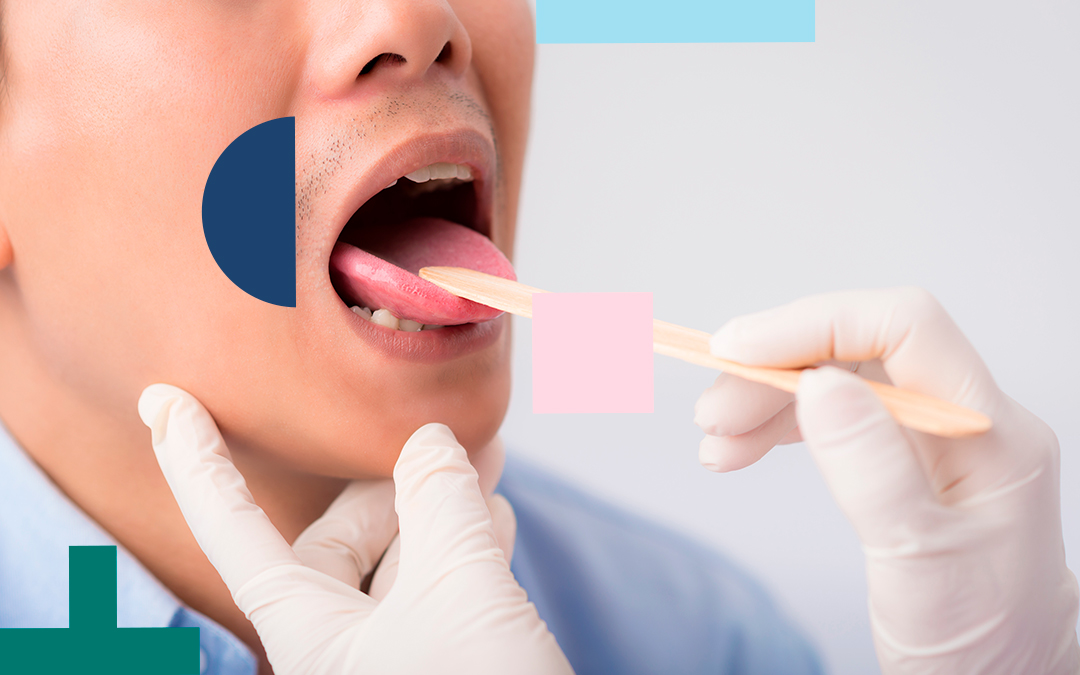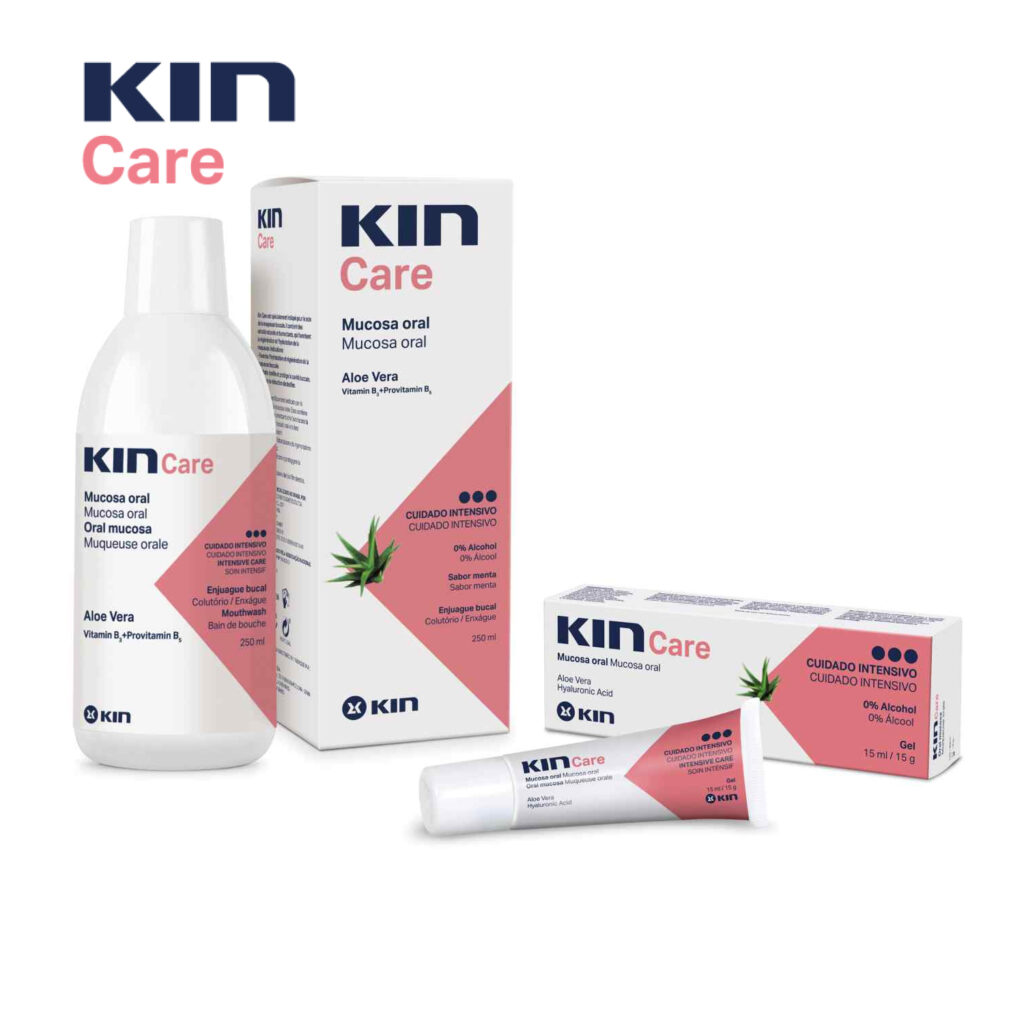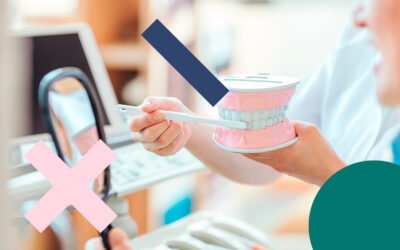A multitude of micro-organisms that form part of our body's natural flora regularly inhabit the oral cavity. These include bacteria in particular, but also opportunistic fungi such as Candida albicans, the main cause of oral candidiasis in children and adults.
This tiny fungus is found in almost every environment around us, including our bodies. The difference between suffering or not from an infection of the oral mucosa is due to the strength of the immune system that prevents the spread of this and many other micro-organisms.
What is oral thrush?
Also known as thrush, it is an infection of the mouth caused by the proliferation of the fungus Candida albicans. This opportunistic micro-organism takes advantage of lowered defences to overgrow, causing a series of characteristic symptoms.
Oral candidiasis manifests as white patches inside the oral cavity, covering part of the cheeks and tongue. The fungal growth may also occur on the roof of the mouth and gums, extending into the throat.
Other common symptoms include a sore throat and discomfort when swallowing, a burning sensation on the tongue, a very dry mouth and problems eating properly due to lesions in the oral cavity.
What are the causes of oral thrush?
Under normal conditions, although the fungus Candida albicans is naturally found in the mouth, the immune system prevents its spread by keeping it under control. However, when the body's natural immunity fails, the fungus can grow and develop.
Oral candidiasis is not contagious. It is characterised by the appearance of creamy white plaques, which may bleed slightly due to damage to the tissues beneath these lesions. When the immune system is depressed due to illness, the plaques grow rapidly and spread throughout the mouth.
Who is affected by oral thrush?
Thrush can affect anyone. The most vulnerable population groups will be those with weaker or underdeveloped immune systems, such as infants and the elderly.
In addition to this, there are some risk factors that could trigger the spread of the fungus, taking advantage of a weakened immune system. In adults suffering from certain systemic diseases such as AIDS or cancer treatment such as chemotherapy, it is common for this or other oral infections to develop.
Taking certain medications such as steroids, inhalers for asthma or COPD treatment, or taking antibiotics, alters the balance of the bacterial flora that protects the oral tissue, favouring the growth of Candida albicans.
Patients with diabetes mellitus who do not have proper blood glucose regulation are also at increased risk of oral infections. This is due to a higher concentration of glucose in the blood, which also reaches the saliva, providing the ideal medium for the growth of oral fungi.
The use of dentures, dry mouth and the previous presence of other oral infections increase the risk of oral thrush, particularly affecting older adults and the elderly.
How can oral thrush be prevented?
The best way to prevent thrush is to take care of the general health of the whole body. Keeping the immune system strong is essential to avoid infections of all kinds. In addition, there are many other actions that can be taken to prevent the overgrowth of fungi naturally found in the oral cavity.
Toothbrushing
The best way to avoid any type of oral infection is through proper hygiene. In addition to toothbrushing, flossing and rinsing complement the cleaning to keep candidiasis under control.
It is very important to brush well after every meal in order to remove food debris that provides a suitable medium for the growth of micro-organisms, both fungi and bacteria responsible for dental plaque. Maintain a healthy mouth with daily care routines.
Discover our products for daily oral care

Low-sugar diet
Limiting the consumption of sweets is another very useful measure for the control of oral candidiasis. In the case of patients with diabetes, it is essential to keep blood glucose levels under control by means of pharmacological treatment and diet.
Treatment of dry mouth
Xerostomia or dry mouth also favours the growth of oral fungi. Moisturising mouth sprays, the use of mouthwashes suitable for this problem, dry mouth dentifrices and other treatments such as oral moisturising gelsimprove the comfort and protection of affected patients.
Maintenance of dentures
For those who also wear dentures, precautions must be taken. Every night when going to bed, it is necessary to remove the dentures and clean them well to avoid the proliferation of fungi that can enter the oral cavity.
Treatment of oral candidiasis
If, despite having taken the appropriate measures, symptoms of oral candidiasis are still visible in the mouth, it is essential to visit your doctor as soon as possible in order to take the most appropriate measures.
Treatment of this infection requires investigating the cause of the possible root cause. In addition to this, the specialist will prescribe an antifungal medication if necessary to kill the fungus and restore the balance of the oral bacterial flora.
Regular visits to the dentist every 6 months help to detect a mild oral thrush problem early. If you are in the population at risk, do not hesitate to monitor your oral health to prevent the spread of this and other pathogenic microorganisms.


 What to consider when choosing the best electric toothbrush?
What to consider when choosing the best electric toothbrush? How to relieve pain with newly placed braces?
How to relieve pain with newly placed braces? How to keep your breath fresh?
How to keep your breath fresh?




